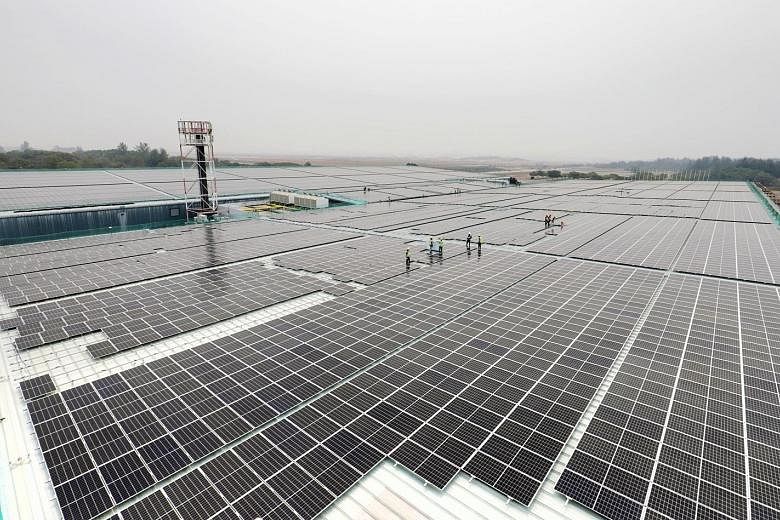The recent debate on halving carbon emissions by 2050 will define the future of Singapore (S'pore's 2050 target: Halve emissions from 2030 peak, Feb 29).
This contributes to research in sectors such as energy, transport, building and food - specifically, integration of energy storage into power grids and buildings as well as the promotion of electric vehicles (EVs).
The technical challenges, such as reliable electrical power transfer from generation sites to batteries and EVs, are not straightforward and are generally not known to the public.
Apart from the technical aspects, this budget debate is really a tug of war between old-school thinking and modern thinking.
We are at a crossroads.
Singapore's ageing society means that the majority of us who are older have enjoyed technologies and products that are considered unsustainable. It might therefore be difficult for many Singaporeans to accept the notion of using taxpayers' money to reduce carbon emissions, given that the promised benefits are abstract and will increase the cost of doing business and living, especially during an economic slowdown.
Many younger Singaporeans, with increased awareness and a greater stake in the future, would think otherwise.
Irrespective of our preferences or attitudes, there is another factor of common interest to Singaporeans - resilience - not just against climate change, but also towards the dependence on imported goods.
The recent shortage of medical masks and hand sanitisers due to the Covid-19 outbreak is a good example of weak resilience.
This is why technologies such as urban farming and synthetic meat production are important investments, to ensure an ample food supply in Singapore while reducing carbon emissions.
In the same way, solar panels and EVs reduce our dependence on imported fossil fuel.
Without a doubt, a climate budget is the key to addressing these matters and approving it is critical for our future.
Jimmy Chih-Hsien Peng

